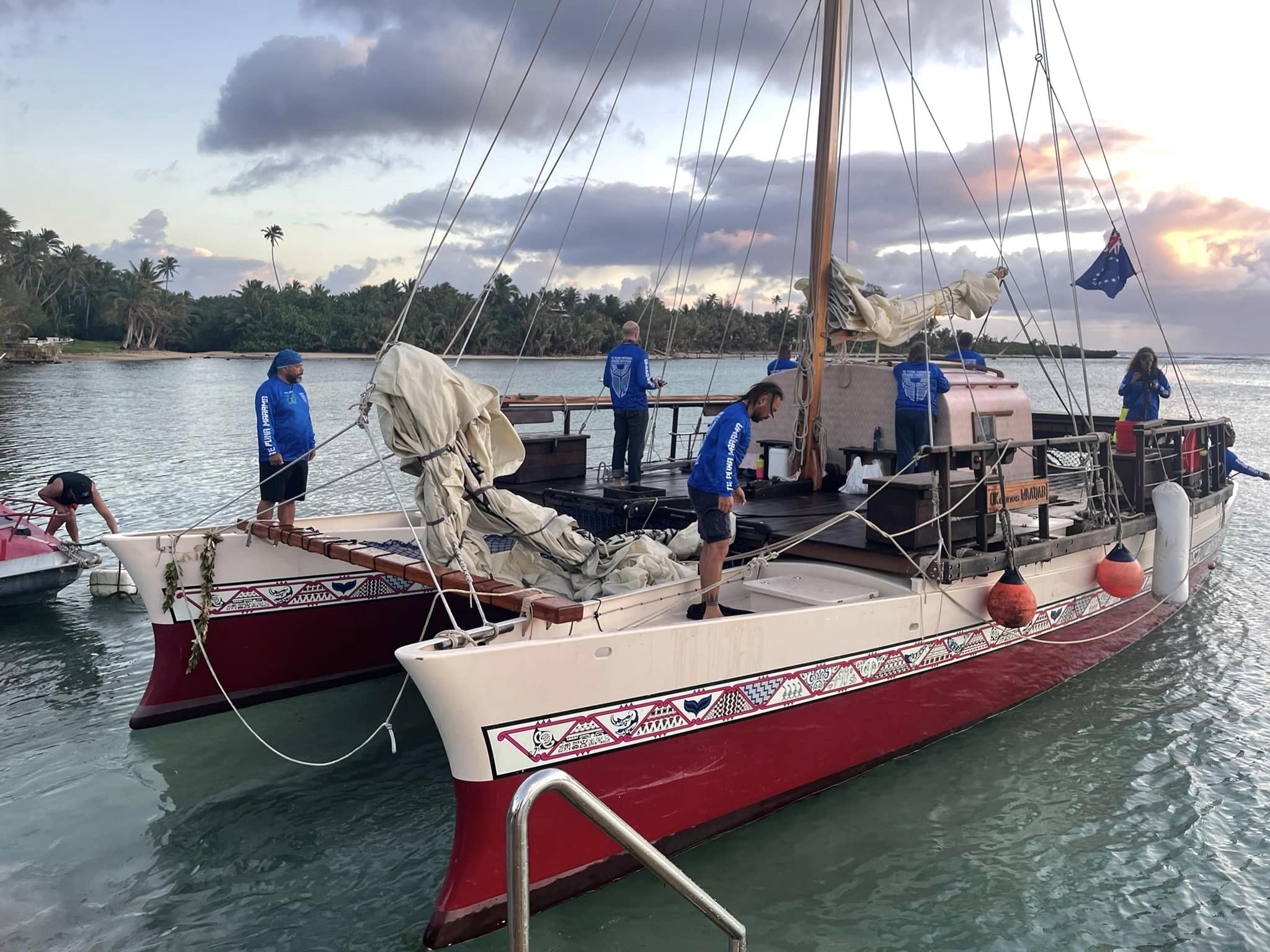Vaka Waa’Qab in Mangaia for cultural study
Thursday 27 October 2022 | Written by Melina Etches | Published in Culture

Bishop Paul Donoghue and Father Freddy Kaina and the students who were confirmed. 22102402
Vaka Okeanos Waa’Qab departed for the island of Mangaia on Tuesday morning with a team from Macquarie University, Australia.
In Mangaia the group will conduct a study of intercultural knowledge sharing on Raui - the traditional method of conservation and preservation of resources on land, sea and the environment.
The purpose of the study is to discover what traditional practices of land and sea resource management contribute to communities impacted by climate change in the Pacific.
Captain of the voyage is master navigator Peia Patai and crew Jerry Joseph, Clyde Raus, Vickson Yalisman and Steven Daniels.
Joining the crew onboard from Macquarie University are Professor Tom Murray, Professor Bronwen Neil, Alex Ryan, Bentley Dean, Anthony Vavia and Okeanos - Foundation for the Sea members Eliane Koller Valadier and Dominique Tehei.
The team will spend two weeks in Mangaia for the study project which is conducted by Professor Tom Murray, Department of Media, Communications, Creative Arts, Language, and Literature and Professor Bronwen Neil, Department of History and Archaeology of Macquarie University.
The Cook Islands Vaka Waa’Qab is a 50-foot, twin-hulled, open-ocean sailing canoe, it is a versatile, eco-friendly work boat built to carry people and cargo within lagoons and over small distances between Pacific islands.
It is one of a growing fleet of vaka operating under the Okeanos Foundation – an international community of ocean navigators, scientists, cultural leaders, spiritual advisers, activists and artists.
The Okeanos Foundations shares a vision for a sustainable, fossil fuel-free future built upon respect for traditional knowledge, environmental stewardship and biodiversity.














































